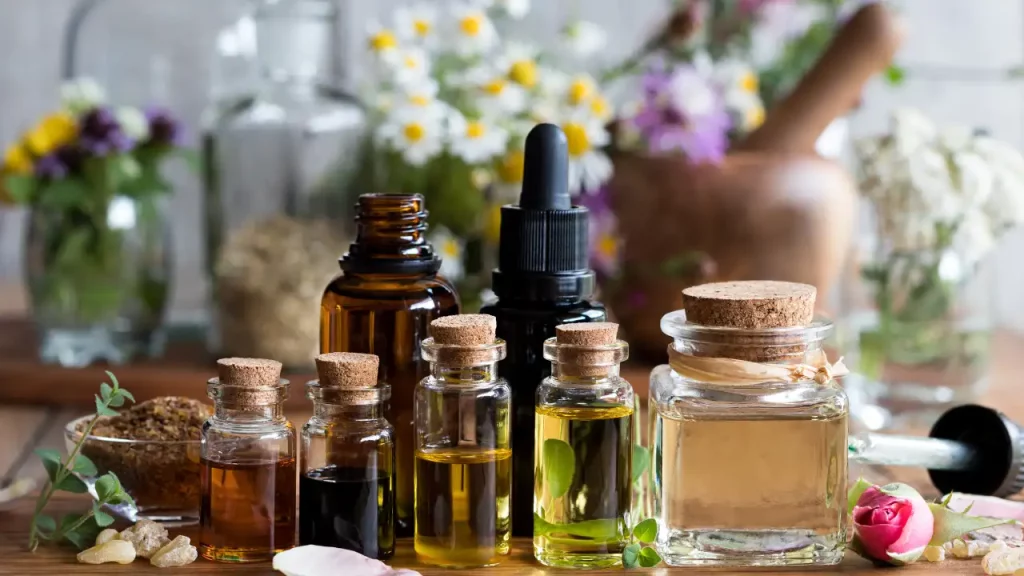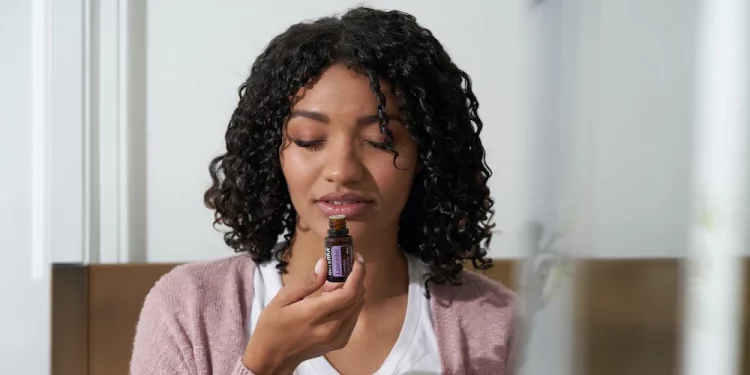In an increasingly fast-paced and overstimulated world, emotional well-being is becoming as vital to health as physical fitness. Amid the rising demand for natural and accessible solutions to stress, anxiety, and emotional exhaustion, essential oils have emerged as powerful allies in emotional self-care. Derived from the aromatic compounds of plants, essential oils carry not only scent but also therapeutic potential. They are believed to influence the limbic system—the brain’s emotional center—helping regulate mood, memory, and hormonal responses. From lavender’s calming effects to the uplifting nature of bergamot, essential oils are now incorporated into daily routines, clinical settings, and mental wellness programs. This article explores how these natural extracts can be used safely and effectively to support emotional balance, reduce stress, ease anger, and comfort those navigating grief.
The Science of Scent: How Essential Oils Affect the Brain
The sense of smell is intimately linked to the brain’s limbic system, which governs emotions, memories, and physiological responses such as heart rate and breathing. When inhaled, aromatic molecules from essential oils bind to olfactory receptors in the nasal cavity, triggering neural signals that reach the amygdala and hippocampus—regions associated with emotional processing and memory formation.
This direct brain access is why certain scents can produce immediate emotional shifts. Unlike medications that require digestion and metabolic transformation, aromatherapy can work within seconds, often bypassing cognitive defenses. Studies have shown that particular essential oils influence neurotransmitter activity, including serotonin and dopamine, thus modulating mood and stress levels. Clinical trials have also demonstrated changes in physiological markers, such as reduced cortisol (the stress hormone), decreased blood pressure, and improved heart rate variability after exposure to specific essential oils.
While essential oils are not a substitute for professional mental health care, they can be powerful adjuncts in emotional regulation, particularly when integrated into a holistic self-care regimen.
Lavender: The Classic Calmer
Perhaps the most researched essential oil for emotional support, lavender (Lavandula angustifolia) is synonymous with calm. Its soothing floral aroma has been shown in numerous studies to reduce anxiety, promote sleep, and stabilize mood. The active compounds linalool and linalyl acetate exhibit sedative and anxiolytic effects by modulating GABA activity in the brain—a neurotransmitter that inhibits overexcited nerve activity.
A meta-analysis published in Phytomedicine in 2020 confirmed that lavender aromatherapy significantly reduced symptoms of generalized anxiety disorder (GAD), often rivaling pharmaceutical interventions without the associated side effects. Lavender is commonly used during meditation, in pillow sprays for insomnia, and in diffusers to create a serene environment.
For emotional self-care, lavender is especially effective in moments of acute stress, overstimulation, or nervous fatigue. It is safe for most users when inhaled or diluted with a carrier oil and applied topically to pulse points such as the wrists, temples, or neck.
Bergamot: Uplifting Citrus for Emotional Lightness
Bergamot (Citrus bergamia), a citrus oil extracted from the rind of the bergamot orange, offers a bright and slightly floral scent that uplifts mood and dispels emotional heaviness. It is often used in cases of sadness, low motivation, and mild depressive symptoms.
Inhalation of bergamot essential oil has been linked to increased production of dopamine and serotonin, neurotransmitters that regulate pleasure, energy, and emotional resilience. A 2015 study in the journal Complementary Therapies in Medicine found that bergamot inhalation for 15 minutes significantly reduced cortisol levels and improved positive emotions in a group of working women.
Because of its stimulating yet calming properties, bergamot is an ideal choice for emotional self-care routines aimed at overcoming inertia, apathy, or post-burnout fatigue. It can be diffused in the morning to start the day with clarity or used as part of a self-massage blend to lift mood.
However, bergamot is photosensitive, meaning it can increase skin sensitivity to sunlight. When applying to skin, it should be properly diluted and used in areas not exposed to direct sunlight.
Frankincense: Grounding the Spirit During Grief
Frankincense (Boswellia carterii), a resin-derived oil used in spiritual rituals for centuries, holds a unique place in emotional healing. Its warm, balsamic scent is grounding and centering, making it particularly effective during times of grief, loss, or emotional disorientation.
Frankincense has been shown to modulate the hypothalamic-pituitary-adrenal (HPA) axis, which controls the body’s stress response. It also exhibits mild anxiolytic and antidepressant properties by influencing neural receptors involved in emotion regulation.
For those grieving or experiencing emotional numbness, frankincense can serve as an anchor. Diffusing it during reflective practices such as journaling, prayer, or meditation helps individuals reconnect with their inner self and process complex emotions gently. It blends well with oils like lavender and rose, creating a nurturing and introspective atmosphere.
Frankincense is considered safe for inhalation and diluted topical use. Its emotionally stabilizing effects are enhanced when combined with slow, diaphragmatic breathing.
Ylang Ylang and Anger Release
Anger is a powerful yet often suppressed emotion that, when unaddressed, can lead to irritability, resentment, and even physical ailments. Ylang ylang (Cananga odorata), with its sweet and exotic floral scent, has a harmonizing effect on the nervous system. It works by reducing systolic blood pressure and heart rate, supporting the body’s return to a parasympathetic (calm) state.
In a clinical setting, a blend of ylang ylang, lavender, and bergamot was found to reduce anger-related symptoms in patients with hypertension, according to research in Evidence-Based Complementary and Alternative Medicine. Ylang ylang also fosters emotional receptivity, helping individuals recognize underlying pain beneath expressions of rage.
For emotional self-care, this oil is effective when diffused in high-tension environments or added to a bath with Epsom salts after an emotionally charged day. Because its scent can be intense, it should be used sparingly and blended with other oils to avoid overstimulation.
Safe Aromatherapy Routines for Daily Emotional Balance
Essential oils can be incorporated into a variety of self-care rituals that support emotional balance. However, safety and consistency are key to achieving desired outcomes. Below are tailored routines for specific emotional needs:
For Stress Relief
Morning Reset: Diffuse 3 drops of lavender, 2 drops of bergamot, and 1 drop of peppermint during morning meditation.
On-the-Go Support: Combine 5 drops of lavender and 5 drops of chamomile in 10ml of carrier oil in a roller bottle. Apply to wrists before meetings or during tense moments.
Evening Wind-Down: Add 5 drops of lavender and 3 drops of vetiver to a warm bath before bed.
For Anger and Irritability
Diffuser Blend: 3 drops ylang ylang, 2 drops bergamot, 1 drop frankincense.
Topical Application: Mix 6 drops ylang ylang with 10ml of grapeseed oil and apply to the chest or back of the neck.
Breathwork Practice: Inhale from cupped hands (after placing a drop of diluted oil on the palm) for 3 minutes while practicing deep belly breathing.
For Grief and Emotional Release
Meditation Support: Diffuse 2 drops frankincense, 2 drops rose, and 1 drop sandalwood during reflective journaling or silent sitting.
Comfort Blend: Mix 4 drops frankincense and 4 drops myrrh in 10ml of jojoba oil. Massage over the heart area.
Sleep Aid: Place 1 drop of lavender and 1 drop of frankincense on a tissue under the pillow to support rest and emotional processing overnight.

Safety Considerations and Best Practices
While essential oils are natural, they are highly concentrated substances that must be handled with care. Always dilute essential oils in a carrier oil (like coconut, jojoba, or almond oil) before applying to the skin to prevent irritation or allergic reactions. Avoid ingesting essential oils unless guided by a qualified clinical aromatherapist.
Certain oils like bergamot, lemon, and lime are phototoxic and should not be used on the skin before sun exposure. Pregnant individuals, children, and those with asthma or epilepsy should consult a healthcare provider before beginning aromatherapy.
It’s also important to use therapeutic-grade essential oils from reputable sources to ensure purity and avoid synthetic additives, which may counteract the intended therapeutic effects.
The Emotional Dimension of Essential Oils: A Holistic Perspective
Beyond their chemical constituents, essential oils offer symbolic and sensory experiences that contribute to emotional healing. The act of selecting a scent, preparing a blend, or pausing to inhale mindfully cultivates presence—a powerful antidote to emotional overwhelm. Aromatherapy encourages a return to the body and breath, fostering self-awareness and compassion.
Emotional self-care is not about erasing difficult feelings but creating space to feel them safely and process them constructively. Essential oils can help facilitate this inner work, serving as both emotional cues and physiological aids in times of turbulence or transition.
Conclusion: A Scented Path to Emotional Clarity
Essential oils offer more than pleasant aromas—they are tools for emotional resilience, self-awareness, and healing. Whether used to calm nerves, ease anger, or navigate grief, essential oils work by subtly shifting brain chemistry and creating sensory rituals that ground us in the present moment. Their impact on the emotional landscape is both immediate and cumulative, deepening with regular practice and mindful intention.
By incorporating essential oils into daily routines, individuals can reclaim a sense of agency over their emotional state. The power of scent, when used with respect and consistency, becomes a bridge to inner calm, clarity, and connection—a fragrant step toward more compassionate self-care.







































